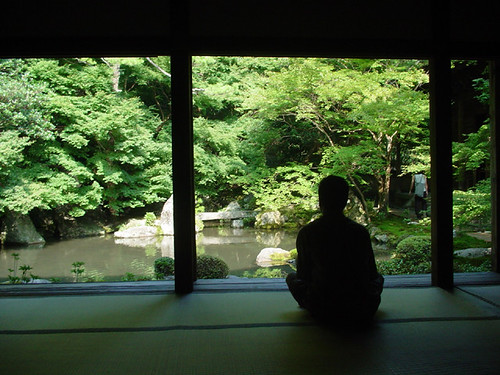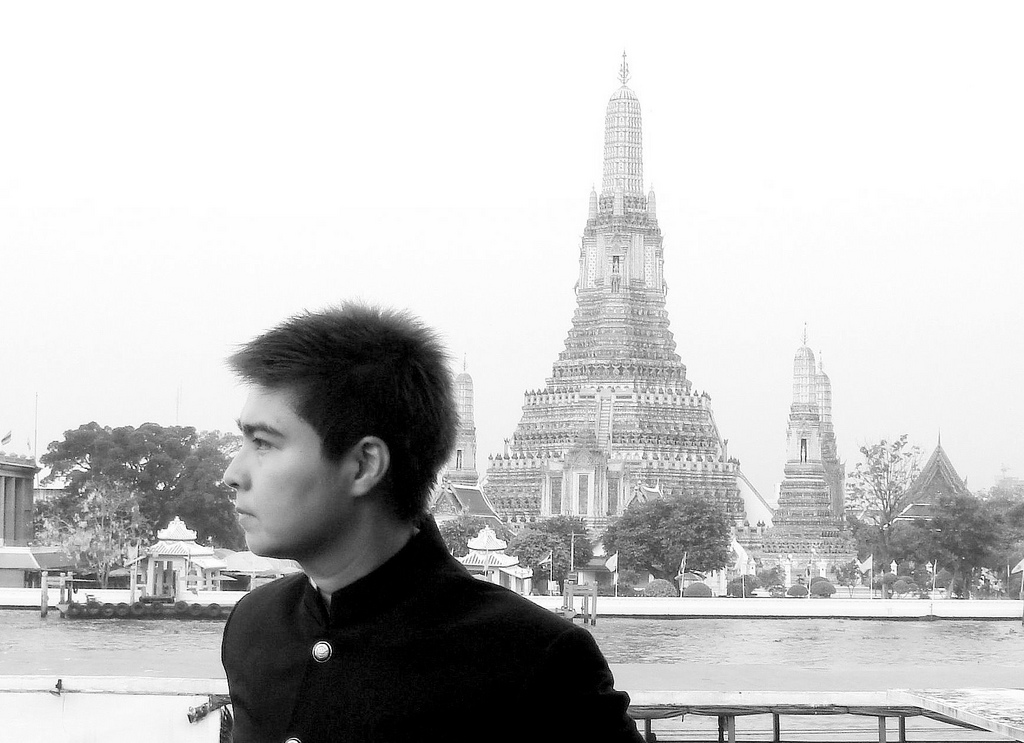Today marks the 4th anniversary of the 2004 tsunami disaster, a catastrophe that was billed as the deadliest in history, claiming more than 200,00 lives across many countries in the Asian continent.

Photo courtesy of Bangkok Post
Most of us can likely remember the magnitude of the impact the disaster had on our lives or people close to us. In the wake of the tragedy, many people who were directly affected asked a well-known scholar-monk, the Rev W. Vajiramedhi, for advice.
His various dhamma talks on the topic given on different occasions were later compiled into a book, titled Kluen Nok, Kluen Nai (The Waves Without, The Waves Within). Many editions have been printed to give away as a dhamma dana (gift of dhamma) by various compassionate individuals and organisations.
Today, as the fateful date returns, many families and friends of the victims could not help but be reminded of the heartache when they learned that they just lost their loved ones.
In Buddhism, every crisis is a learning opportunity. Under proper guidance, one can develop the technique to turn every crisis into a lasting wisdom that eventually leads to enlightenment itself.
Since the book by the Rev W. Vajiramedhi was in Thai and is now out of print, the author would like to dedicate the space of today's column to summarise the gems of that wisdom as a befitting memorial to that tragic event.
The sound advice that the Rev W. Vajiramedhi gave to the friends and families of the victims of the 2004 tsunami is as follows:
Accept the truth. The faster, the better
Whenever crisis strikes, be it from natural disasters or man-made ones, find your inner strength through mindfulness so that you would be able to accept the truth as it is.
According to the Rev W. Vajiramedhi, by accepting the truth, the mind would be able to restore its balance. The faster one can accept the truth, the faster one can move on with life.
On the other hand, the longer one lingers in suffering over the event that has passed, the more difficult it would be to regain a proper frame of mind. The bottom line is, those who are courageous enough to accept the truth up front would be able to think properly and know what needs to be done.
In order to have the proper frame of mind to gain wisdom from a disaster, the Rev W. Vajiramedhi suggested that we should be open-minded. Merely observe without being judgmental. Do not criticise and try to find a scapegoat. The blame game, one must realise, does not get one out of suffering.
Familiarize Oneself with Life's Ultimate Truth
This second step to gain wisdom from a disaster has a two-fold benefit. Not only one would gain wisdom from the disaster that just occurred, but one would also be prepared for future, unavoidable disasters as well.
Life's ultimate truth is in fact very straightforward. And when one learns it when disaster has not struck yet, it would be easier for the mind to accept. Therefore, the Rev W. Vajiramedhi said it is important that we familiarise ourselves with them as soon as possible in life, so that the next time disaster strikes, we would be ready. Life's ultimate truth includes:
1) No one escapes ageing. In fact, the deteriorating process toward death starts at birth; 2) No one escapes illness and pain; 3) No one escapes death; 4) Losing loved ones and treasured possessions cannot be avoided; and 5) To each his/her own karma. No one escapes the Law of Karma.
By realising this final truth alone, one would be able to refrain from the blame game that is nothing more than creating a new negative karmic cycle for oneself.
Learn to Live Fully in the Present
Suffering only occurs when one's mind falls into the past or ventures in speculation into the future. Therefore, the ability to live fully in the present is a valuable life skill. The Rev W. Vajiramedhi suggested some practical methods as follows:
1) Keep oneself busy; 2) Build up one's concentration through prayer; 3) Learn meditation techniques; and 4) Learn how to face one's own death by practicing mindfulness of death, Maranassati.
Mindfulness of Death
In it simplest meaning, the practice of mindfulness of death is to be constantly aware that death can happen to us any second. In Lord Buddha's words, the mindful ones are those who realise that they might not survive even into the next breath. When practiced properly, mindfulness of death would: 1) sharpen one's mindfulness; 2) enable us to understand the true value of life; and 3) enable us to perform our duty without carelessness. Mindfulness of death can be practiced in every waking moment, the Rev W. Vajiramedhi said, even when stuck in traffic.
There is one word of caution, though. As with any other mindfulness practice, it is best to be done under supervision of a veteran teacher.
If mindfulness of death is practiced without proper understanding, it could yield: 1) fear of one's death; 2) depression, and/or 3) careless/mindless living (for mistakenly believing that death simply means one would no longer be able to do indulge).
At this point, the author would like to add that, beside monks, there was one social class in history that successfully practiced mindfulness of death. They were the Japanese feudal samurai. After turning to Zen during the Kamakura Period (1185-1333), the samurai actively practiced mindfulness of death to help enable them to see life in perspective and, in effect, help them deal with suffering. The list in Japanese history is long for the samurai who were able to face their death calmly, mindfully, either at the hand of the enemy or on their deathbed. This is doubtlessly due to their lifetime of practice of mindfulness of death.
Build One's Radar System for 'the Waves Within'
The Rev W. Vajiramedhi observed in his book that, while countries spend millions setting up centres to detect possible disasters from tsunamis - or "the waves without" - no one seems to put equal efforts to detect "the waves within."
By "the waves within," the Rev W. Vajiramedhi meant the waves of anger, fear, disappointment, greed/lust, and ignorance. The ultimate advice for Buddhists is, therefore, to start building one's personal radar to watch out for the disasters within ourselves.
At the end of the day, the ability to detect a disaster within from the minute it starts to ripple would be the key to ultimately shield us from any further suffering from the disasters without. Because such ability, arisen from continuous mindfulness practice, would eventually lead us to Enlightenment. Ultimately, we were affected by the tsunami because we were born. If there is no "us", there would be no suffering.
The enlightenment, quite frankly, is the final answer.










